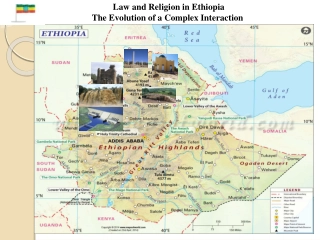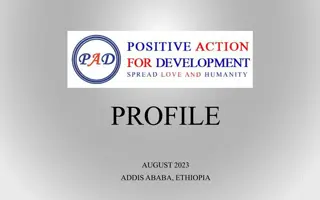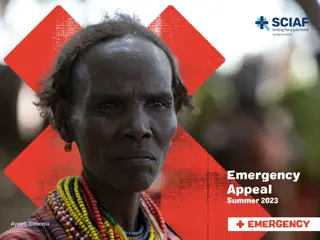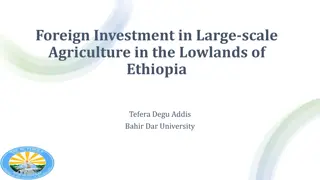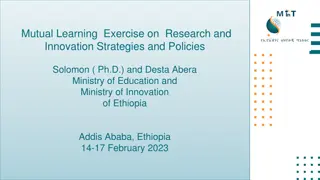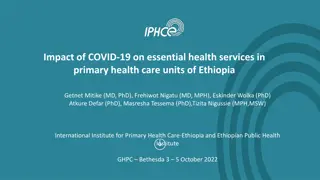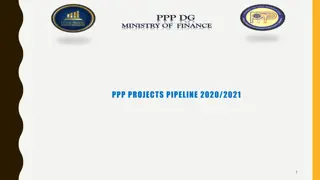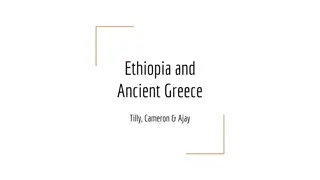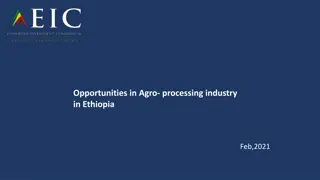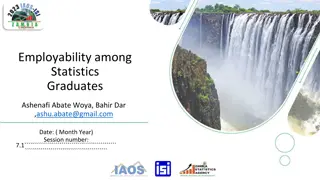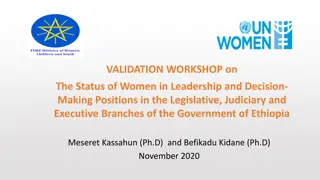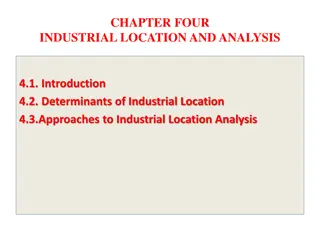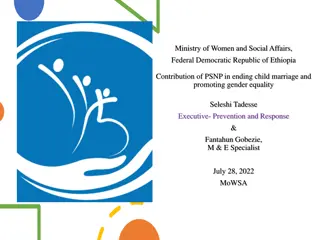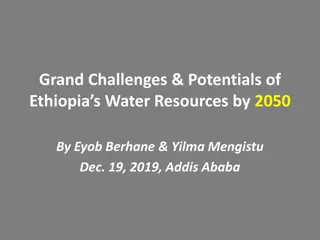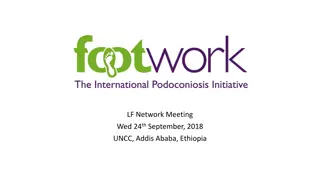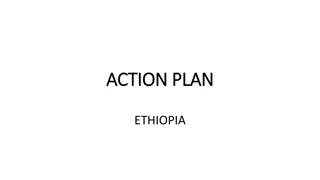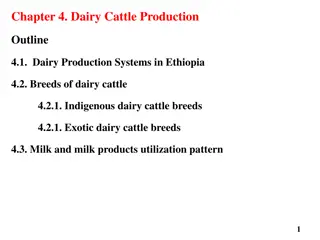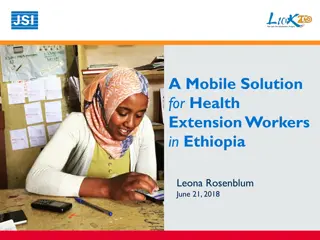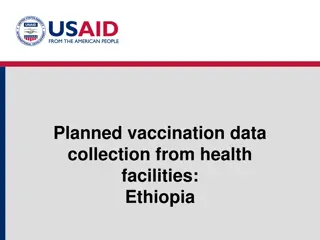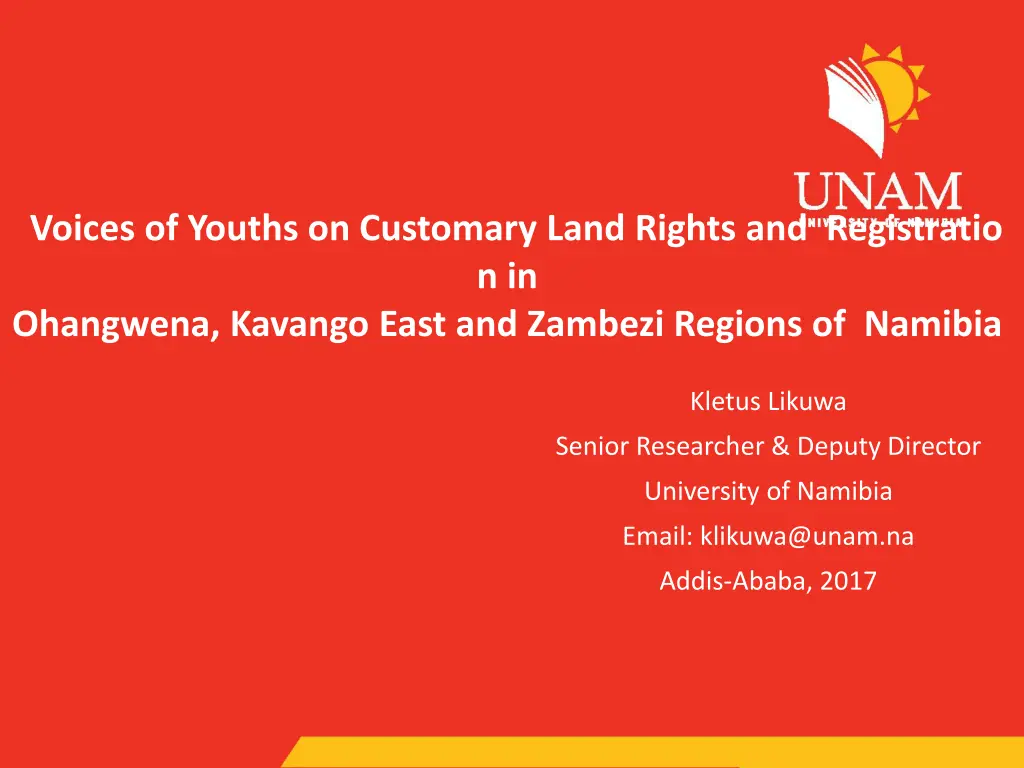
Exploring Namibian Youths' Perspectives on Customary Land Rights
This study delves into the voices of Namibian youths on customary land rights and registration, focusing on selected regions. It highlights the importance of youth participation in land-related developments for improved land security and productivity. By analyzing government initiatives and conducting qualitative discussions with purposefully selected youths, the study aims to understand youth perceptions, interests, and participation in customary land rights registration while providing recommendations for enhanced engagement.
Download Presentation

Please find below an Image/Link to download the presentation.
The content on the website is provided AS IS for your information and personal use only. It may not be sold, licensed, or shared on other websites without obtaining consent from the author. If you encounter any issues during the download, it is possible that the publisher has removed the file from their server.
You are allowed to download the files provided on this website for personal or commercial use, subject to the condition that they are used lawfully. All files are the property of their respective owners.
The content on the website is provided AS IS for your information and personal use only. It may not be sold, licensed, or shared on other websites without obtaining consent from the author.
E N D
Presentation Transcript
Voices of Youths on Customary Land Rights and Registratio n in Ohangwena, Kavango East and Zambezi Regions of Namibia Kletus Likuwa Senior Researcher & Deputy Director University of Namibia Email: klikuwa@unam.na Addis-Ababa, 2017
INTRODUCTION The study focussed on exploring youth voices on customary land rights and registration from selected regions in Namibia. Customary land rights registration was introduced through the Ministry of Land reform to promote land security and productivity in line with Communal Land Reform Act of 2002 (Kapitango, 2009). The aim of registration was to bring about tenure security and promote investment in communal land as a means to improve the lives of the poor. It was puzzling that despite the centrality of youths in land related developments, youth voices have been absent from the discourses on customary land rights registration with minimal emerging youth voices in the urban settings
Namibia national goal of improving peoples social and economic conditions and reducing poverty will depend on people s productive use of land through agriculture and tourism and youth participation (NPC 2012) Youths in Namibia are expected to be at the forefront of developmental transformations within their communities Since the African agenda of the Africa we want is to achieve socio-economic transformation through inclusive and equitable access to land by youth, it is important that we continue to discuss the problem of the lack of youth participation in customary land rights and registration African youths continue to lobby that their perspectives and voices on land should be heard. It is accepted that research on youths land rights and needs and their perspectives on land will help to strengthen land interventions.
Methodology and Aims of study Methodology and Aims of study By using a qualitative method of oral group discussions with 80 purposefully selected youths and perusing government publications, the study aimed to: Explore youths perceptions over government intentions for customary land registration; Explain the youth s interest and participation in the government initiated customary land rights registration process; and To make recommendations for improved participation
RESULTS OF THE STUDY RESULTS OF THE STUDY The youth voices pointed out that: Government targeted invitations for land registration meetings to land owners excluded most youths. Contestation over customary law and statutory law on customary land ownership and control and the fear of land loss and control through customary land registration informed youths and their communities lack of interest to participate. Youths remain sceptical over why they and their communities must register and how registration would contribute to improving family lives. Since majority are poor and unemployed and could not afford a customary land application fee of N$25 or R25, government expectations that registration will encourage access to finance and investment in their land was questionable and even laughable among the youths
Governments registration remains un-convincing in light of high unemployment and poverty among the youths. Youths view customary land registration under an individuals name as individualistic rather then promoting existing communal approach to customary land holding. The belief is that a serious threat and possible future loss to customary land lies not within the communities but from outsiders with land grabbing interest using customary land registration program as a pretext for eventual land grabbing Customary land registration documents and since many in the communal areas lacks them, they feared that registration will result in the loss of their customary lands assertion about the advantages or benefits for required Namibian identification
Since communities practice shifting land cultivations and continuously changes areas of abode, limitations to 20 hectare per person as per the original registration requirement and the question of what will happen to the remaining unregistered land, created fear and discouraged participation in customary land registration. Youths linked customary registration to payment for service delivery and to eventual land loss due to failures to live up to payment expectations Many youths are leaving poverty ridden and underdeveloped rural areas for opportunities in urban areas and thus lacks interest in asserting or voicing their participation in rural land affairs as their future lies in the urban areas While youths in rural areas need customary land, many do not want to settle and use it immediately as they still regard their future in urban areas and only wish to ensure that customary land remains something to only fall onto should their urban land settlement plans fail. There are lack of government initiatives or programmes to promote land ownership and land use among youths
CONCLUSIONS CONCLUSIONS Government introduced customary land rights registration to promote tenure security and improve access to finance for investment with conviction that this will promote social and economic development for the rural land holders Customary land registration has been rejected by youths and communities who saw it as a foreign land policy imposed on them Youth are not prioritised in Namibia s land policies and land reform programmes leaves the youths feeling marginalised Landlessness and lack of economic opportunities in rural areas continue to push youths into urban areas where they eventually face social economic challenges resulting from landlessness and lack of housing
The youths are unemployed and poor and many can not afford to pay the required R25 application form fee for customary land, they therefore remain sceptical that customary registration will give them access to finance and make investment in their land. Furthermore, youth are aware that the banking institutions do not consider customary land rights as security for money lending or investment, they thus considers customary land rights registration useless in terms of financial access and land investment. Land programmes with a youth target are marginal in Namibia, therefore, youths have limited opportunities or platforms to engage in land matters
Recomendations Recomendations Government should engage youth and their communities to discuss impediments in customary land registration program in a manner beneficial to youths and their communities Government need to develop and implement land policies that are home-grown and that responds to the pressing social and economic needs of local communities with community participation if such land policies are to gain community support and implementation Namibia land policies and land reform programmes should prioritise youth if the country is to harness from the potential and energy of youths for sustainable economic development Government should prioritise rural development programmes to provide opportunities that youth are seeking for in urban areas so as to encourage youths to remain and develop rural communities
There is a need for increased development intervention programmes to reduce poverty and unemployment among the youth if the goals for customary land registration of access to finance and investment in land is to be realised. Government and NGOs should streamline youths in all land programs and resources distribution should be intergenerational and target both youth and elders equally.
References References Bukalo youths. (2014, 05 22). Interview on customary land rights. (K. Likuwa, Interviewer) Dimbare Frans youths. (2014, November). Interview on customary land rights. (K. Likuwa, Interviewer) Mariental youths. (2014, 07 31). Interview on customary land. (K. Likuwa, Interviewer) Mbandje, N. S. (2014, November). Interview on customary land rights . (K. Likuwa, Interviewer) Mumbala. (2014, 05 22). Interview on customary land. (K. Likuwa, Interviewer)
Books Kapitango, M. M. (2009). Communal Land Registration . Windhoek: NID. Likuwa, K. M. (July 2013). Review of Liberating Namibia the long diplomatic struggle between the United Nations and South Africa. Journal of African History, 54, 1. Namwoonde, N. E. (2008). A rejected import : registration of customary land rights in Kavango (LLB dessertation). Windhoek: UNAM. NPC. (2012). Namibia's Fourth National Development Plan, (NDP4), 2012-2017. Windhoek: Government printers. OPM. (2002). Communal Land Reform Act, 2002. Windhoek: Office of the Prime Minister.

